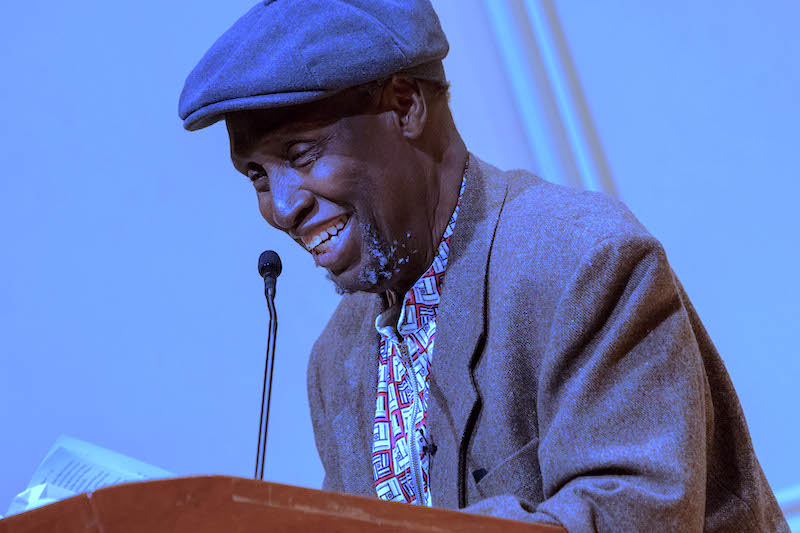
The revolutionary Ngũgĩ wa Thiong'o has died.
Ngũgĩ wa Thiong’o has died. The Kenyan novelist, playwright, poet, and critic was 87.
The “towering giant of Kenyan letters” broke through in 1964, with the publication of his first novel, Weep Not, Child. The bold debut, nurtured under his then-mentor, Chinua Achebe, dazzled an English-speaking public.
Thiong’o went on to write withering critiques of the state, serious comic novels, and epics that asserted and affirmed a stretching diaspora. Eminently courageous, witty, wise, and prolific, his work spanned genres and styles.
Born in Kenya under British rule, Thiong’o survived colonial violence—including the Mau Mau Uprising, which claimed his brother’s life. His early books criticized the occupation. But after Kenya declared independence, he turned his pen on the new ruling class who he felt had betrayed the people.
In the 70s, Thiong’o shed his given English name (James), and began writing in his native Gĩkũyũ, which was then verboten in the new state. Under then-President Jomo Kenyatta’s administration, the author spent a year in jail for adopting his own language in print. Undiminished, he wrote another book while incarcerated.
He’d spend a great deal of his writing life in exile, evangelizing for Gĩkũyũ and native language speaking as a postcolonial practice. Thiong’o continued to write bold and ambitious texts (and often, translate those same texts himself) well into the aughts. Like his 2007 magnum opus, the satirical Wizard of the Crow.
Thiong’o was nominated many times for the Nobel Prize, but Sweden always biffed it. So we readers are tasked to keep the flowers coming.
In The Paris Review, Namwali Serpell described the man as “too revolutionary for our time.” Elsewhere in his “Art of Fiction” interview, Serpell tied his doggedly political ethos to a literary mission. “What makes his work political amounts to the recognition that to write with and about people—poor people, black people, women—is to fight for the People.”
Rest in peace, giant.
Image via
Brittany Allen
Brittany K. Allen is a writer and actor living in Brooklyn.



















